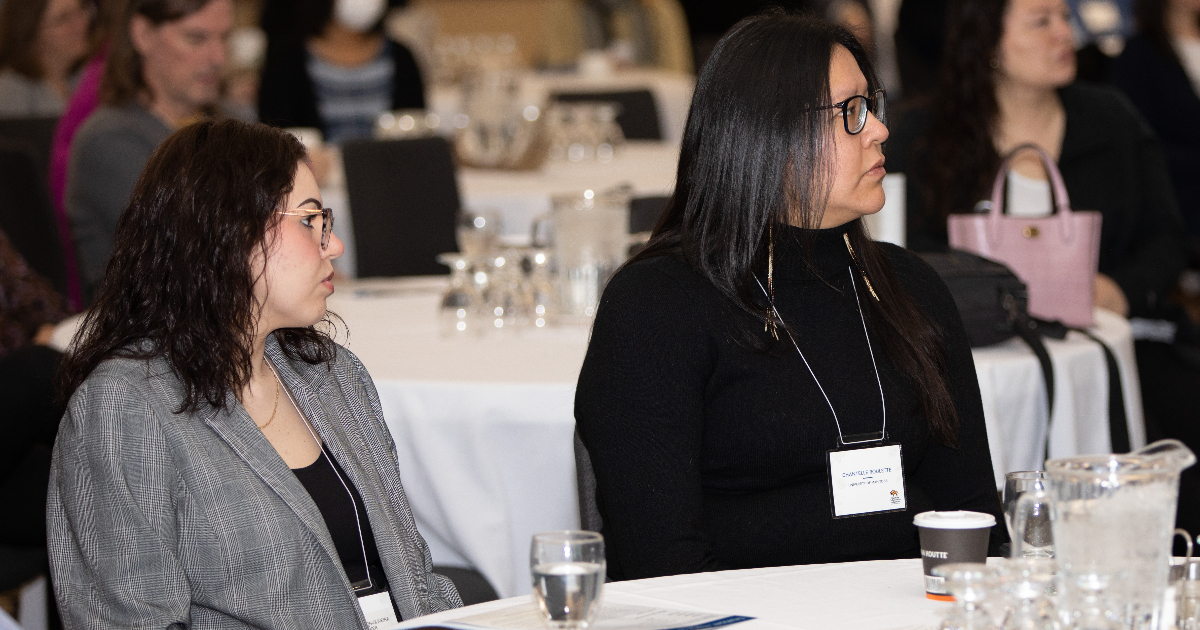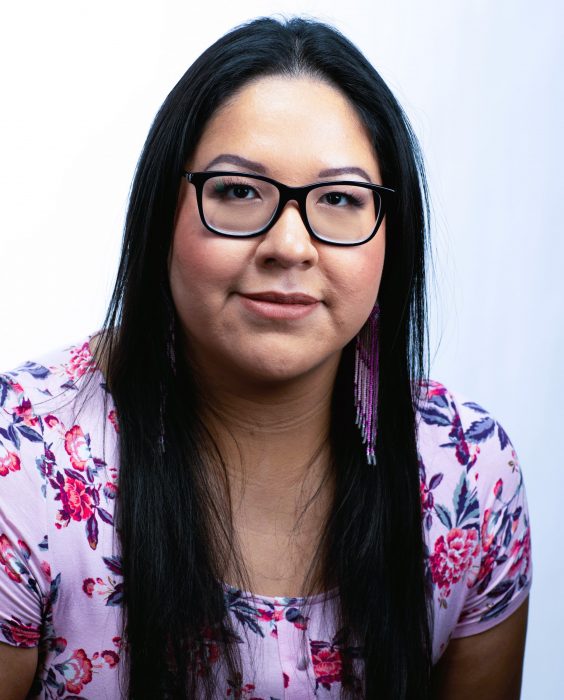
Attendees at the 2023 Manitoba Collaborative Indigenous Education Blueprint Conference.
Working together for excellence in Indigenous education
Manitoba Collaborative Indigenous Education Blueprint adds new partners
This time of year always brings about a sense of growth, renewal and excitement on University of Manitoba campuses. Graduates celebrate their many accomplishments at convocation and the Annual Traditional Graduation Pow Wow, and prepare to enter the next chapter in their lives.
This year, there is an extra buzz of transformation in the air.
April 14 marked an exciting day for educators as Manitoba grew one step closer to making our province a global centre for Indigenous education, research, languages and cultures. Signatories of the Manitoba Collaborative Indigenous Education Blueprint—an unprecedented, collective effort to advance 10 education-related commitments informed by the Truth and Reconciliation Commission of Canada’s Calls to Action—were joined by the Manitoba First Nations Education Resource Centre, as well as the Province of Manitoba Advanced Education and Training, and Education and Early Childhood Learning departments.
These new partners join the six universities, three colleges and Manitoba School Boards Association, who originally signed the Blueprint in December 2015. .
Committing to Indigenous education in Manitoba

Chantelle Roulette
Through the Blueprint, signatories support reconciliation in Manitoba through partnerships built on mutual respect, helping to dismantle barriers to equitable education for Indigenous students. The partners’ goal is to increase access to education for all Indigenous learners from recruitment to retention and to embed Indigenous knowledge and content from early education to post-secondary.
“Everything always starts with a conversation—now that it’s being talked about among educators, government and community, it will help implement these processes into academia,” says Chantelle Roulette, a student from Sagkeeng First Nation who recently completed her third year, majoring in Indigenous governance with a minor in business.
Identifying high-level priorities in Indigenous education
Since the initial signing, Blueprint partners have made progress in increasing access to services, programs and supports for Indigenous students; bringing Indigenous knowledge(s), culture and teaching approaches into curriculum and pedagogy; and creating opportunities for everyone to understand historical contexts and contemporary realities.
They recently convened for the Working Attausikuuluta (All Together) for Excellence in Indigenous Education Conference, held in Winnipeg in early 2023.
For Roulette, who wasn’t previously familiar with the Blueprint but volunteered at the conference, the discussions were eye-opening.
“The conference was a very good experience because it brought in different people to come up with goals for the questions that are being asked, like ‘What constitutes expertise in Indigenous knowledges?’ since it doesn’t necessarily equate to colonial institutions,” says Roulette, who also lent her voice to a video featuring student voices shared at the Blueprint’s resigning. “It was awesome to see people come up with potential solutions to address these issues.”
Reconciliation in action
Also helping to advance the Blueprint’s goals is the partnership between UM and the Mastercard Foundation’s EleV Program, which is supporting thousands of Indigenous young people on their post-secondary journeys.
Strengthening collaboration between post-secondary institutions, Indigenous partners, governments and industry, drives systems change. It creates learning and work environments where Indigenous youth are no longer asked to leave their identities at the door to “fit in” but, rather, be in spaces where they belong.
“Education is the most powerful tool we have to bring about change, and the University of Manitoba is excited by the news of more collaborators joining this movement to increase representation in classrooms so that we can create meaningful and safe pathways to success,” says Michael Benarroch, President and Vice-Chancellor at UM. “Thanks to the continued efforts of the Blueprint signatories and its steering committee—and through initiatives like UM’s partnership with the Mastercard Foundation—we are working together to make Manitoba a global centre of excellence for Indigenous education, research, languages and cultures.”
Looking ahead
Coming out of the conference, three new communities of practice will advance collaboration on priority issues: affirming the rightful place of Indigenous Knowledge in academia; closing the digital divide in northern and remote communities; and credit transfer strategies to promote student mobility in Indigenous language proficiency and education. For more information on the communities of practice, or to join, email mcieb@umanitoba.ca.
Visit the Manitoba Collaborative Indigenous Education Blueprint website for more information.






